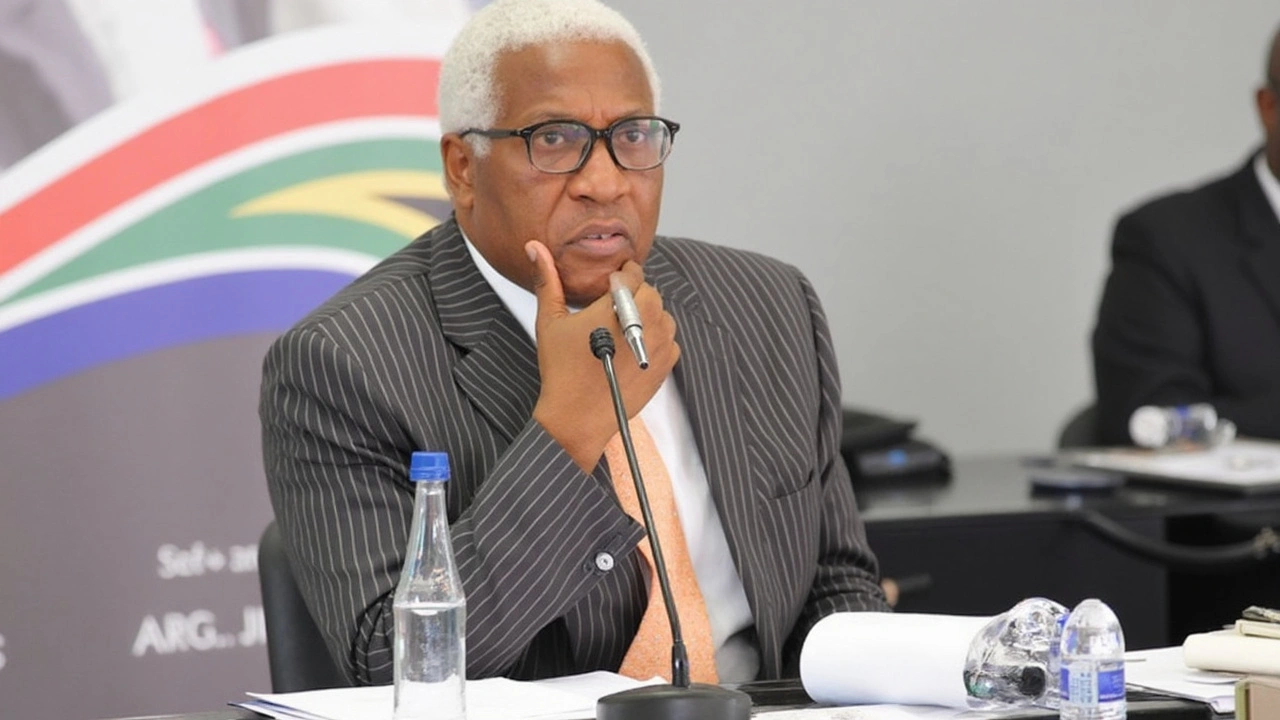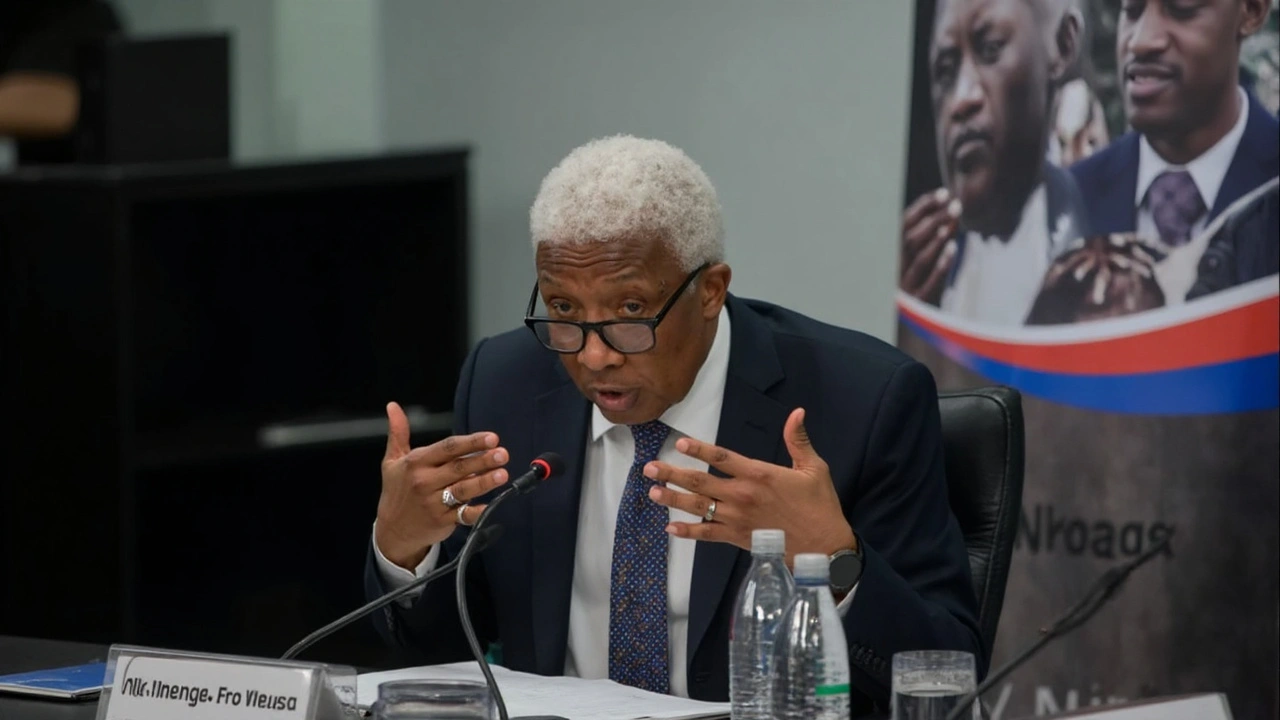Judge Selby Mbenenge Faces Mounting Scrutiny in Sexual Harassment Tribunal
The Judicial Conduct Tribunal’s probe into claims against Eastern Cape Judge President Selby Mbenenge keeps gaining intensity. After several days of pointed testimony, the process hit pause in July and is set to pick up again in late October. At stake? The professional reputation of one of the country’s top judges, and the wider public’s trust in the judiciary.
None of this drama started quietly. The central accusation comes from Andiswa Mengo, a long-serving High Court secretary. She alleges that between 2021 and 2022, Judge Mbenenge repeatedly crossed the line—from unwanted advances and suggestive emoji exchanges, right up to a confrontation where she claims the judge exposed himself. One small but heavily debated detail: Mbenenge sent a syringe emoji, which he insists referenced his own medical treatments related to a health condition, but which Mengo interpreted with suspicion given the wider context of their chat history.
During a tense cross-examination, led by evidence leader Salome Scheepers, Mbenenge pushed back hard. He called her style ‘malicious persistence’ and demanded concrete proof, particularly regarding allegations of explicit photos. “Give me specific dates,” he pressed, repeatedly denying anything more suggestive than the disputed emoji. Scheepers admitted the evidence trail from WhatsApp messages wasn’t complete enough to prove Mbenenge definitively sent indecent images. Yet she maintained the judge’s credibility had suffered due to several inconsistencies and the unusual tone of the communication records.
There’s another layer here—legal jockeying that extends far beyond Mbenenge and Mengo. The Judicial Service Commission (JSC), which typically suspends judges facing such intense public accusations, chose not to bench Mbenenge during the investigation. That move, announced back in February 2024, broke tradition and caused ripples across legal circles, with critics claiming it risked undermining faith in the courts. Meanwhile, Mbenenge switched roles from accused to accuser, opening a crimen injuria case against Mengo for distributing their private WhatsApp chats to others and, by extension, the broader legal community. The case highlights how personal boundaries and expectations of privacy become blurred in judicial power structures.

Next Steps: October Arguments Bring Clarity—or More Questions
The tribunal proceedings aren’t a quick affair. After July’s adjournment, both legal teams are preparing to deliver their closing oral arguments on 21 and 22 October. These final sessions are expected to be tough, with both sides picking apart not just the explicit accusations, but the nuances of evidence, memory, and professional conduct. The tribunal is set to weigh not just who said what, but what the gray areas in chat logs and in-person interactions reveal about power, boundaries, and credibility.
While the case unfolds in headlines, it’s reshaping conversations within South Africa’s legal world about how such complaints are handled and judged. Judges aren’t often put on the defensive under public gaze, but the unusual circumstances around Mbenenge’s suspension—or lack thereof—have already set a precedent that will get more attention no matter the tribunal’s final verdict.



Harassment cases need clear rules, not jokes.
Reading about Judge Mbenenge’s case really shows how delicate the balance is between judicial authority and personal conduct. The judiciary must be seen as above reproach, yet judges are human too, so a transparent process is crucial. It’s good that the JSC opted to keep him on the bench while investigations run, but that decision also sparked a lot of debate about fairness. Hopefully the October hearings will shed light on the facts without turning into a media circus.
Honestly, this whole saga feels like a reality‑TV drama cooked up for headlines. A syringe emoji? That’s a cheap trick to paint a judge as a villain or a victim depending on who’s scrolling. If the evidence is this flimsy, the tribunal should focus on concrete proof, not on emoji interpretation. Otherwise we’re just feeding the public’s appetite for scandal.
The tribunal timeline looks tight.
Power in the courtroom is like an invisible hand that can both protect and crush, and when that hand reaches out on a private chat, the line between professional and personal blurs in unsettling ways. The allegations against Judge Mbenenge force us to ask whether a judge’s moral compass should be judged by the same standards we apply to any citizen, or whether a higher bar is justified because of the office they hold. If we lower that bar, we risk eroding public confidence; if we raise it too high, we may trap judges in an impossible expectation of perfection. The syringe emoji, for instance, could be an innocent reference to a medical condition, yet it became a symbol of alleged impropriety, showing how context can be twisted. Moreover, the fact that the JSC chose not to suspend him during the investigation signals a willingness to protect institutional stability, but it also opens a door to accusations of bias or favoritism. What’s striking is the reciprocal legal battle: Mbenenge filing a crimen injuria case against the secretary for leaking chats, turning the tables and highlighting how privacy violations can be weaponized. This push‑and‑pull reveals a deeper issue about how digital communication is handled in professional hierarchies, where a single message can become damning evidence. The upcoming October hearings will need to dissect not just the content of the chats, but the power dynamics that shaped them. Are we seeing a genuine quest for truth, or a staged performance aimed at preserving reputations? The broader legal community in South Africa watches closely, because the precedent set here could ripple through future harassment claims against officials. Ultimately, the tribunal’s decision will resonate beyond one judge’s career; it will echo in every courtroom where authority meets accountability.
The points you raised about digital evidence are spot on. In practice, WhatsApp logs can be edited or selectively shared, which makes it tricky to rely solely on screenshots. The tribunal should bring in a forensic expert to verify the integrity of the messages. That way the focus stays on factual accuracy rather than speculation.
From a procedural standpoint, the tribunal must ensure both parties have equal opportunity to present their evidence. Any perceived favoritism could undermine the legitimacy of the verdict. Clear guidelines on handling private communications should be established for future cases.
Totally agree, the process needs to be airtight. If the rules are vague, it just fuels more gossip and distrust.